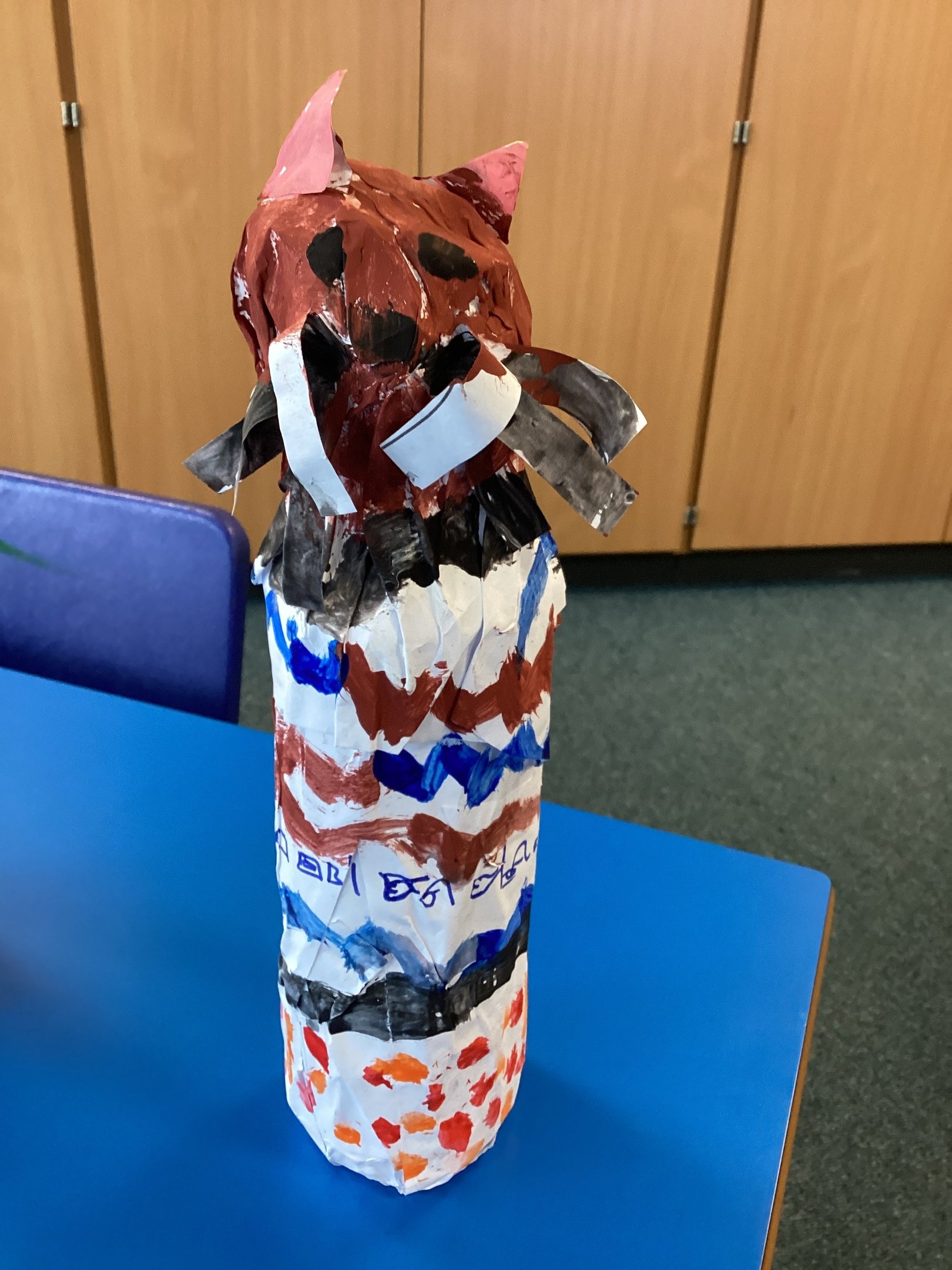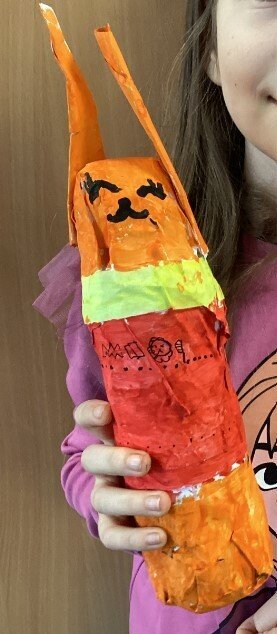Writing

Writing at Fryent
Writing is more than putting words on paper. Your child needs to think about what to write; say what they want to write, write it down and re-read their writing. It is a balancing act between having wonderful ideas (creativity), organising their ideas and the ability to put these exciting ideas onto paper.
At Fryent we are proud to encourage children to:
- Read and write with confidence, fluency and understanding using a range of independent strategies to self monitor and self correct
- Have an interest in words, their meanings; developing a growing vocabulary in spoken and written forms
- Understand a range of text types and genre and be able to write in a variety of styles and forms appropriate to the situation
- Developing powers of imagination, inventiveness and critical awareness
- Have a suitable technical vocabulary to articulate their responses
The structure of writing is broken down into six main stages:
Immersion- When the children are first introduced to a new text, we look for ways to hook them into it and make them excited to read. For example, when Year 5 do a scene description of a spooky garage from the text Skellig, we recreate the scene in our outdoor classroom for them to experience for themselves.

Year 4 create their own canopic jars as part of their Ancient Egypt history topic and write to Brent Museum to persuade them to display them.



In Year 2, they use the story of Jack and the Beanstalk to inspire writing and go on their own hunt to find Jack's treasure. They role play as characters from the story as well to help them with the vocabulary they will need to write.



Then we study the main features of the text type, so children have a clear understanding of the features of chosen text/genre e.g. imperative verbs/time conjunctions/formal or informal language. Children are also given the opportunity to practise different aspects of grammar that are needed to be able to write to the chosen text type.
Click here to see the core texts/stimuli we have chosen to inspire our writing.
Scaffolding- This can include a selection of short
Planning- Children begin to plan for their piece of writing, drawing upon examples from the immersion and scaffolding stages.
Writing + Proof Reading - Using everything they have learnt and using their plan, children are given dedicated writing time to express their ideas on paper. They are encouraged to proof read their work as they go along. The success criteria help to guide the children into including the appropriate features.
Editing- Children responding to marking and up level their writing using the success criteria to guide them.
Publishing- Each half term children are given time to publish their work for it to be displayed in the classroom.
Handwriting
At Fryent, we expect pupils to be joining by the end of year two. Children are taught to write in a cursive style. Handwriting is taught weekly to pupils. We have a handwriting panel of children who meet together to decide who can write skilfully enough to have a pen licence. Those children are then awarded their own pen licence and a handwriting pen to use in their books.
How to support your child’s writing at home
As your child becomes a better writer they will need to:
- Write varied sentences, including complex sentences.
- Write sentences which are grammatically correct and punctuated.
- Organise, structure and sequence their writing.
- Use paragraphs.
- Produce writing which is imaginative, interesting and thoughtful.
- Produce writing which suits the task, the purpose and the audience.
- Use and select exciting and appropriate vocabulary
- Use correct spelling
- Develop good handwriting and present their work well.
What does writing need?
Clear thinking. Sometimes your child needs to have his/her memory refreshed about a past event in order to write about it.
Sufficient time. Children may have `stories in their heads' but need time to think them through and write them down.
A Meaningful Task. A child needs meaningful, not artificial writing tasks. You'll find suggestions for such tasks in the section, "Things to do."
Interest. All the time in the world won't help if there is nothing to write, nothing to say. Some of the reasons for writing include: sending messages, keeping records, expressing feelings, or relaying information.
Practice. And more practice.
Revising. Children need experience in revising their work – for example, seeing what they can do to make it clearer, more descriptive or more concise.
Things to do at home
- Exchange Post-it notes with your children. Put the notes on pillowcases or lunch boxes or any surprise location!
- Help your child assemble photo albums of family events and write captions.
- Ask children to put their wishes and wants into writing and suggest how they may work toward or contribute to getting what they want.
- Help your child create a family newsletter or website to share with family members near and far.
- Suggest that your children write postcards to themselves when they are away from home. When they receive their own postcards in the post, they will have a souvenir of their trip.
- Make writing practical and useful by having children write grocery and task lists, reminders and phone messages, instructions for caring for pets, or directions for getting to the park.
- Encourage your child to keep a diary.
- Suggest note-taking on trips or outings.
- Use games to help increase your child’s vocabulary. Try crossword puzzles, word games, anagrams…
- Encourage your child to write to relatives
Please click here to see the writing progression across the school
If you have any queries about the Writing Curriculum , please contact Ms Davter, Assistant Head Teacher on the telephone number shown above or by email on admin@fryent.brent.sch.uk
Supporting those with SEND
For our mainstream special needs, Opal School pupils and those new to English/early acquisition pupils, we use a range of techniques including colourful semantics and Blanks levels of questioning. Wherever possible, there is a multi-sensory approach to writing. Please see the document below for examples.




















